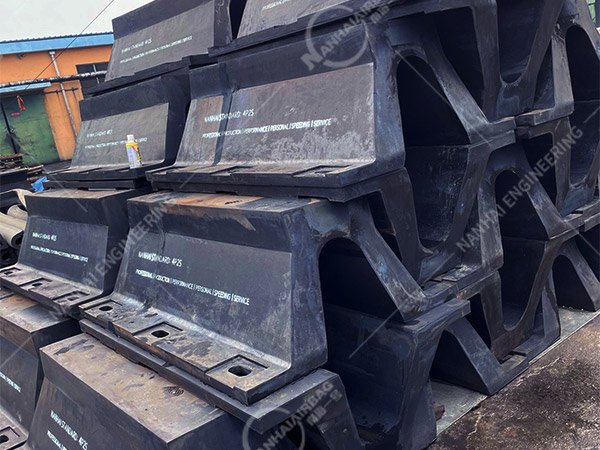Cylinder Rubber Fenders: Simple & Cost-Effective Impact Solutions
08/05/2025Super Cell Fenders: The Heavy-Duty Guardians of Maritime Safety
15/05/2025If you’ve ever wondered how ships avoid crashing into docks, you’re in the right place. Jetty fenders are the unsung heroes protecting ports, marinas, and ships from costly collisions. Let’s dive in!
Featured Snippet Alert: What Are Jetty Fenders?
Jetty fenders are protective barriers installed along docks, piers, or jetties to absorb the impact of ships docking or shifting in rough waters. Made from durable materials like marine rubber fenders, they act as shock absorbers, preventing structural damage to vessels and harbors.
Why This Matters: The Urgency of Protecting Ports
Imagine a cargo ship ramming into a busy marina. The result? Millions in repairs, environmental spills, and disrupted supply chains. Here’s why jetty fenders are non-negotiable:
- Real-World Example: In 2021, a tanker collided with a poorly protected jetty in Singapore, causing a 10-day port shutdown and $5M in damages.
- Environmental Risks: Ship impacts can rupture fuel tanks, spilling oil into ecosystems.
- Economic Impact: Downtime at ports delays shipments, affecting global trade.
Without jetty fenders, ports face safety hazards, financial losses, and legal liabilities.
🚢 What Exactly Do Jetty Fenders Do?
Think of them as giant cushions. When a ship docks, kinetic energy from its movement is transferred to the fender, which compresses to dissipate the force. This prevents:
- Cracks in concrete piers.
- Hull breaches on ships.
- Expensive downtime for repairs.
🌊 Types of Jetty Fenders (And How to Choose)
Not all fenders are created equal. Here’s a quick breakdown:
1. Marine Rubber Fenders
- Best For: Most marinas due to their flexibility and durability.
- Pro Tip: Opt for high-density rubber for harsh weather.
2. Cylindrical Fenders
- Use Case: Ideal for heavy-duty ships like cargo vessels.

3. Arch Fenders
- Advantage: Space-saving design for compact docks.

🌟 Why Invest in Quality Jetty Fenders?
- Cost Savings: Preventing one collision saves thousands in repairs.
- Eco-Friendly: Reduces oil spill risks.
- Reputation Boost: Safe ports attract more business.
🔍 People Also Ask (Related Questions)
- “How do jetty fenders differ from ship fenders?”
Jetty fenders protect docks; ship fenders safeguard vessels. Both often use marine rubber fenders. - “Can marine fenders handle extreme weather?”
Yes! Premium marine rubber fenders resist UV rays, saltwater, and freezing temps. - “Are all jetty fenders the same size?”
No. Sizing depends on ship tonnage and docking speed. Consult an engineer! - “How long do marine rubber fenders last?”
10–15 years with proper maintenance.
